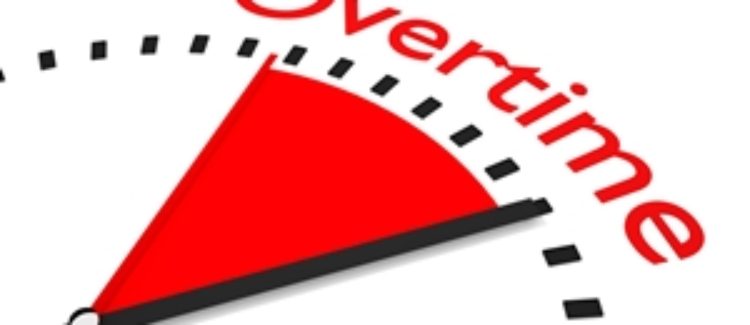Your Nonprofit May Not Need to Comply with FLSA

Earlier this year, the US DOL issued new regulations, effectively doubling (from $455 per week to $913 per week) the wage threshold at which an employee might be considered exempt from the Overtime rules of the Fair Labor Standards Act. Last week, a Federal judge in Texas issued an injunction, temporarily delaying this increase, which was scheduled to take effect on December 1, 2016. As a result, the way in which an employer determines exempt/non-exempt status for its employees remains the same as it has for the last 10+ years (the increase that brought us to the $455 per week threshold occurred in 2004).
Before the injunction, in May 2016, the US DOL issued a white paper titled Guidance for Non-Profit Organizations on Paying Overtime under the Fair Labor Standards Act, regarding the technical details of how the Fair Labor Standards Act was intended to affect nonprofit employers. While this article did not include anything that the US DOL considers to be “news” – because aside from the increase in the wage threshold, the only other notable change within the new regulation is that it includes a scheduled increase to the wage threshold, every three years – the US DOL issued this article due to their understanding of common misperceptions among the nonprofit community, regarding how the FLSA was intended to be enforced.
Here is a link to the article on FLSA Compliance and Nonprofits: https://www.dol.gov/whd/overtime/final2016/nonprofit-guidance.pdf
The most notable item included in this article is the clarity that the US DOL has added to situations where an organization must comply with FLSA at an Enterprise level, vs. the situations where an organization must comply on an Individual, employee by employee basis.
Enterprise vs. Individual Coverage under the FLSA
The rules of the Fair Labor Standards Act apply to most employers, either as a blanket, across the board rule (“enterprise coverage” – meaning that the employer must comply with FLSA for all of their employees), or they must comply with the FLSA on a case by case basis (“Individual Coverage”). Specifically, Enterprise coverage only applies to an organization that receives at least $500,000 in annual revenues from sales made or business done. For an employer who must comply with FLSA at an “Enterprise” level, you must determine whether or not each of your staff is exempt or nonexempt from FLSA.
Nevertheless, even if an employer does not generate at least $500,000 in annual revenues, they must still comply with the FLSA on an individual employee level, for each employee who engages in “interstate commerce,” or the production of goods for interstate commerce.
The most notable element of the guidance on Nonprofit Compliance with the FLSA is in regards to the definition of Revenue that is being used by the DOL. The US DOL only considers revenues generated by “ordinary commercial activities” to be revenues for the purposes of determining whether or not an organization must comply with FLSA at the Enterprise level. Revenues generated from charitable activity are explicitly excluded. For instance, revenues generated from any of the following activities should not be considered when determining your need to comply with FLSA at an Enterprise level:
- Providing temporary shelter;
- Providing clothing or food to homeless persons;
- Providing sexual assault, domestic violence, or other hotline counseling services; and
- Providing disaster relief provisions.
Examples of what constitutes “ordinary commercial activities” would include:
- Running a gift shop
- Operating a café or restaurant
- Ticket and concessions revenues at a theatre
- Tuition received by a private school
If an organization’s revenues from ordinary commercial activities exceeds $500,000 per year, the organization must comply with FLSA for all its employees (i.e. determine FLSA exempt or nonexempt status), even if an employee is 100% dedicated to the non-commercial side of the organization.
The most compelling information provided in this article by the US DOL, regarding Individual vs. Enterprise coverage, is in regards to how the DOL would make an assessment on an employee who may qualify for FLSA coverage at an individual level.
The Department, however, will not assert that an employee, who on isolated occasions spends an insubstantial amount of time performing such work [interstate commerce], is individually covered by the FLSA. Additionally, even where an employee regularly engages in interstate commerce and is individually covered, the Department focuses its enforcement efforts on circumstances where it can have significant impact on compliance, generally where there is enterprise coverage.
While the above paragraph should not be interpreted as letting you off the hook if you have commercial related revenues of less than $500,000, I do believe that the fact that this statement was included in the guidance from the US DOL should set the minds at ease of any organization that is reconsidering their approach to FLSA compliance as a result of reading this article. My interpretation of this is that for organizations that do no need to comply with FLSA at an Enterprise level, the process that was used in this determination should be well documented.
For all organizations, I strongly encourage you to include a statement in every job description regarding whether or not the position is Exempt or Nonexempt from the Overtime rules of the Fair Labor Standards Act. That said, we also need to consider the NH DOL. While NH does not have more stringent rules regarding overtime pay than the provisions included in the FLSA, the NH DOL is completely independent of the US DOL. Prior to acting on any information that you learned here, it might not hurt to get the perspective of the NH DOL, by submitting an inquiry here: https://www.nh.gov/labor/contact-us/index.htm
